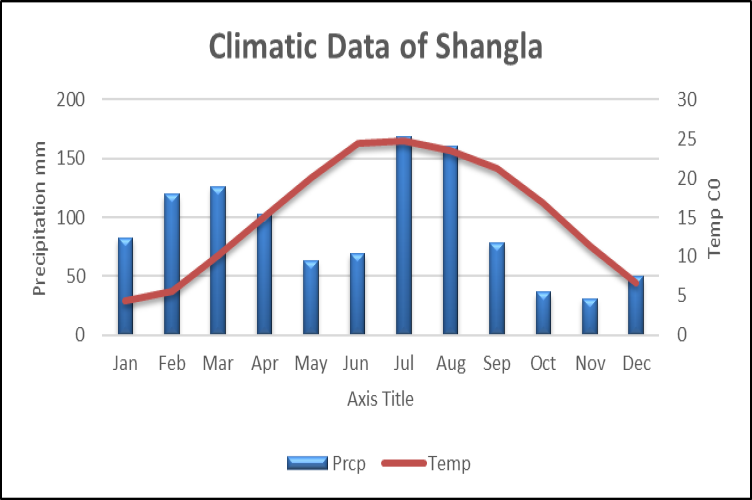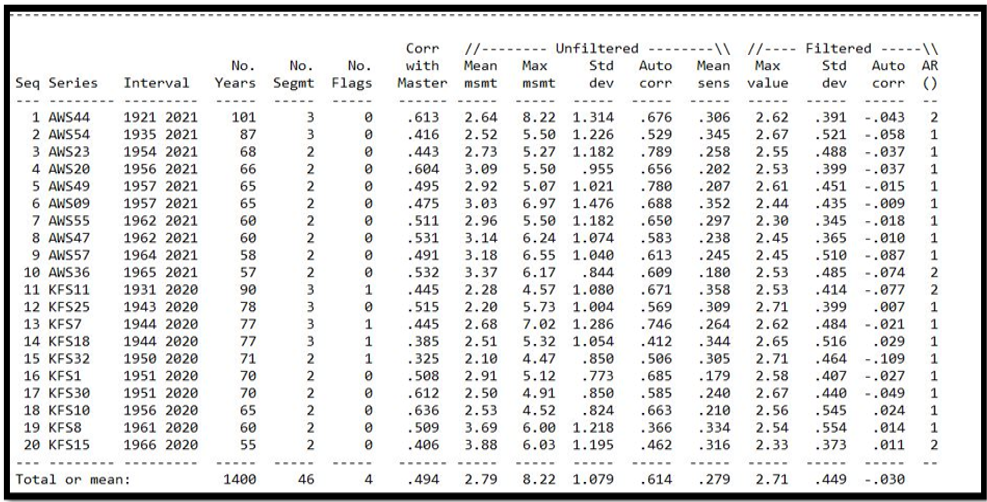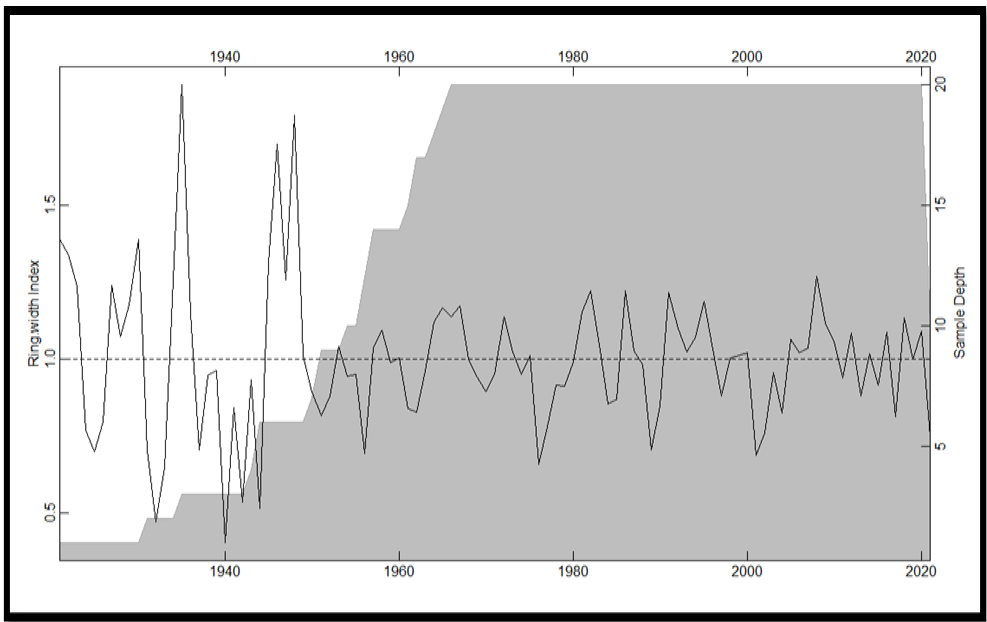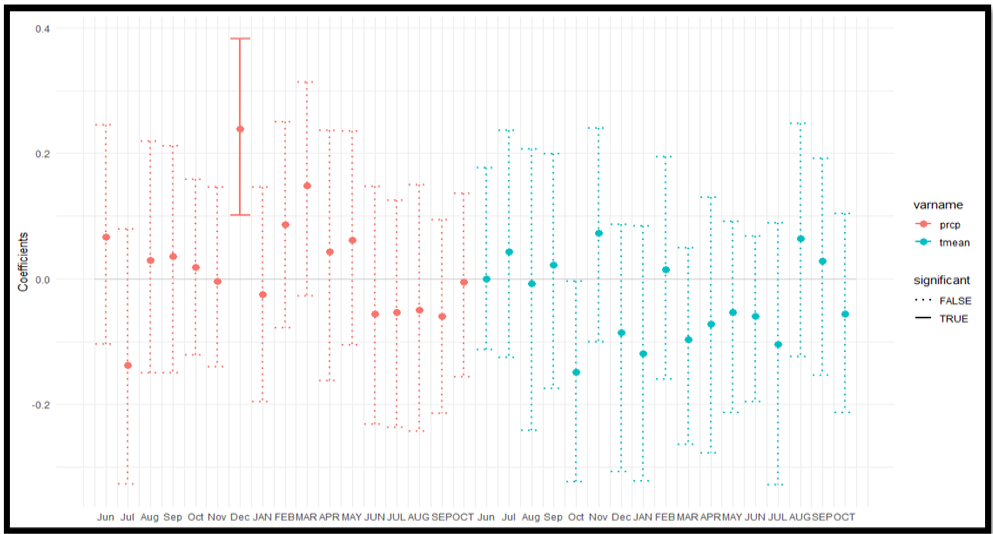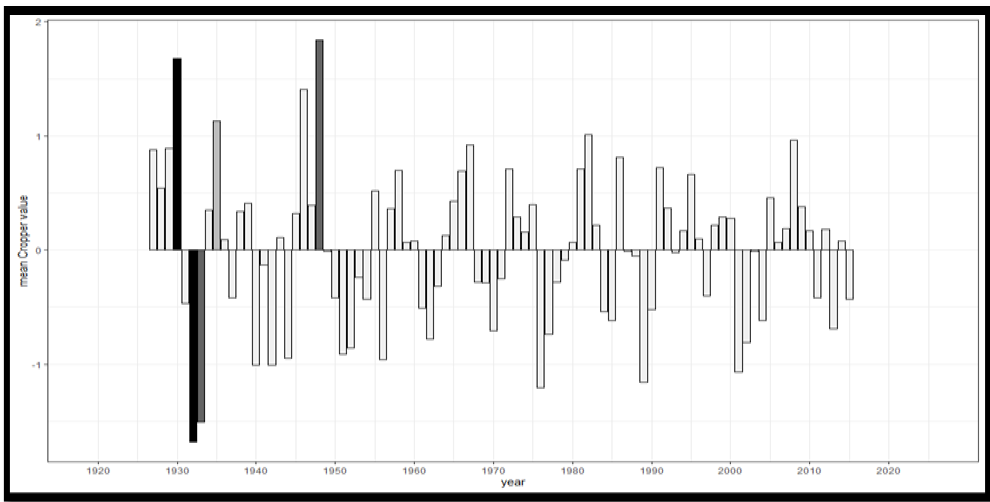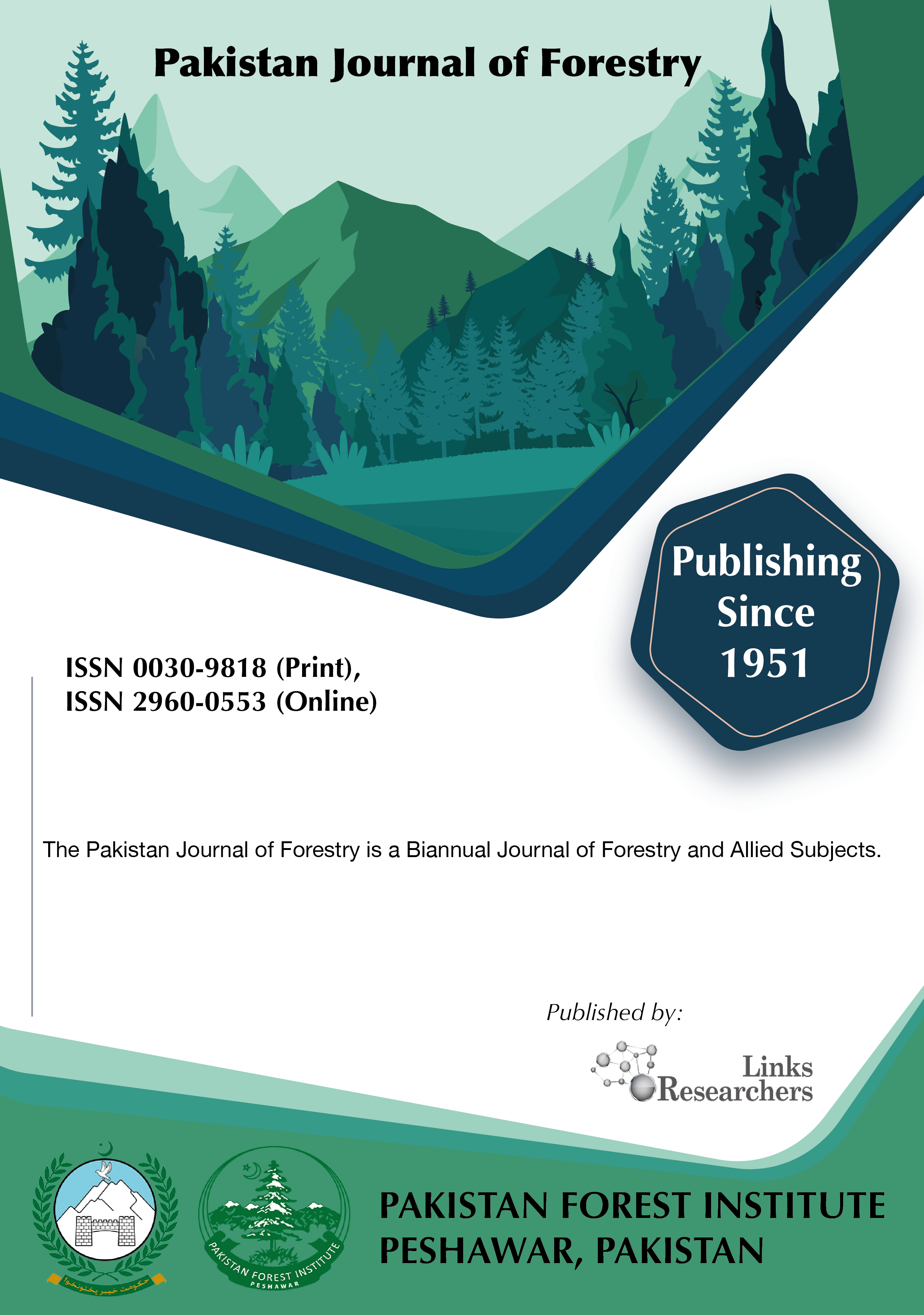Unveiling the Dendroclimatic Potential of Blue Pine (Pinus wallichiana) Growing in Shangla, Khyber Pakhtunkhwa
Unveiling the Dendroclimatic Potential of Blue Pine (Pinus wallichiana) Growing in Shangla, Khyber Pakhtunkhwa
Tanvir Hussain*, Zahid Rauf, Mansoor Ali Khan and Khalid Hussain
Shangla meteorological data’s Climatogram for the Years 1921–2021.
Tree ring chronology from Shangla Forest Area using Cofecha statistics.
The Shangla forest area, Swat, regional tree ring width chronology from 1921 to 2021. The sample depth is shown by the gray region.
Analysis of correlation function for Kail at Shangla; correlation coefficient (r) between monthly meteorological variable and TRW for the current year (capital letters) and the previous year (lower case). Stick bars represent statistically significant associations (p<0.05) (Sohar et al., 2017). The common era (1921-2021) was used to compute correlations between June of the year before tree-ring growth and October of the current growth year (Ahmed et al., 2010).
Blue pine growing in Shangla, KPK, from 1921 to 2021: Positive and negative pointer and event years.



